The hardcore experience of Forza Horizon
No assists, no racing line and the in-car view - taking on the open road in Playground's racer.
When the Washington-based Turn 10 makes Forza games, it does so with a European accent. It's a slightly forced one at times, but there's still an understatement and refinement to the Forza Motorsport series that belies the game's American roots.
Funny, then, that when the series turns to the big, wide American landscape for the open world racer Forza Horizon it does so with the British inflections of Playground, a studio formed from veterans of Codemasters, Black Rock and Bizarre. Be thankful that it does.
Forza Horizon's about that most American of dreams - the promise of the open road - but its accent is unmistakable. It's told in little flashes of welcome influence, from Burnout Paradise's world of secrets to Project Gotham's score attacks and Grid's sense of meaningful progression.
Arcade racers all, but where that Forza influence comes in isn't just in the level of polish (which is layered on in lovely, thick coats) or the succession of real-life cars (which are available in the droves, and seem to include some of the esoterica that Forza has sometimes skipped out on). Take off the assists and shift to the bumper cam and you've got an experience that's sim-minded, and one that's instantly reminiscent of the previous Forza games.
Drive an American muscle car - the Viper that graces the cover, for instance - and there's a tendency for tail-out moments, the rear breaking away forcefully with only the slightest encouragement. Explore other parts of Forza Horizon's garage, however, and there's nuance that allows it to run so much deeper than other, lighter racers.
The front-engined, front-wheel-drive Volkswagen Corrado that's gifted at the start of the campaign requires a more forceful touch if it's to be snapped out of its natural state of languid understeer, something that's perfectly possible to do with a pad. The level of feedback when driving is so acute that it's easy to forget the series' trademark 60 FPS has been halved for Forza Horizon in service of its open-world vision - in the hand, this feels as smooth as Forza ever has.
Horizon's generous with its car-list, and it's only a matter of minutes before it invites you to sample another facet of its garage. After a couple of introductory races and a quick tour of the festival that acts as Horizon's central hub, there's an invitation to attempt the Mustang vs. Mustang event that pitches an air-bound P51 against the more terrestrial Ford. It's showy - you're simply setting off some pre-canned fly-bys when driving through certain checkpoints - but it's hard not to acquiesce when the spectacle's so ludicrously grand. Regardless, the weighty grace of the Mustang provides the perfect sleight of hand, its compliant suspension and excessive power allowing for muscular slides.
With an Impreza offered up next, a different flavour of sideways action is provided. Perhaps unsurprisingly given Playground's heritage - many of the studio's senior staff, such as Ralph Fulton and Gavin Raeburn, established themselves at Codemasters - there's a line that can be drawn between Forza Horizon's off-road moments and the Colin McRae series. There's a clear sense of surface changes translated through the handling, a noticeable change in grip levels when moving from loose gravel to firm tarmac.
Indeed, Forza Horizon feels very much like a product of Codemasters Racing Studio. The festival that frames the campaign feels like it's drifted in from the likes of Dirt and Grid, as do the slightly self-conscious youth culture trappings. There's a tendency to indulge in cut-scenes in the opening hour - they're well produced and animated cut-scenes, mind - some of which feel a little forced, while some are just plain mis-judged. Your character - an otherwise blank cipher who looks like Cole McGrath after a trip to Uniqlo and with his hair grown out - proudly sports a Bluetooth headset, which says much for Microsoft's perception of cool.
The level of feedback when driving is so acute that it's easy to forget the series' trademark 60 FPS has been halved for Forza Horizon in service of its open-world vision - in the hand, this feels as smooth as Forza ever has.
Some of those less flavoursome influences are easy to forgive when the more welcome ones are so wonderfully integrated. From Burnout, there's an element of discovery and a world of ready secrets; smash through enough roadside billboards and you'll be earn a discount at the auto parts store, while new cars can be found in barns dotted around the map and alluded to on one of Horizon's three in-game radio stations.
From Project Gotham, there's a score system that's tied into the style you exercise while driving, but again it's what the Forza formula adds that makes it sing. Rivals provides a constant undercurrent of competition, and it's woven neatly within Horizon's world - speedtraps clock how fast you're going and give an instant comparison to those on your friend's list, while impromptu challenges on otherwise quiet stretches of road give you a time to beat and help add a little urgency to your journey from one event to another.
But all that is secondary to what is Forza Horizon's own. With the playtime wrapping up, it seemed wise to ignore all the distractions that the game offers up and just simply drive. Forza's handling model and an ever-rolling road make for a bewitching pair; the tarmac stretches out into a orange dusk that turns into an empty black night under the watches of the Rockies, the traffic slowly thinning as the hours stretch out into the early morning.
Horizon's handling's so absorbing that it's easy to miss day turn to night and back again. I almost did myself, preoccupied as I was with another thought. The racing genre's weathered a torrid time with the closure of Bizarre, Black Rock and, most recently, Sony's Liverpool Studio. But with the imminent release of Playground's Forza as well as Criterion's Most Wanted, it seems like there might finally be some light on the horizon, and quite possibly a new dawn for the British racing scene.
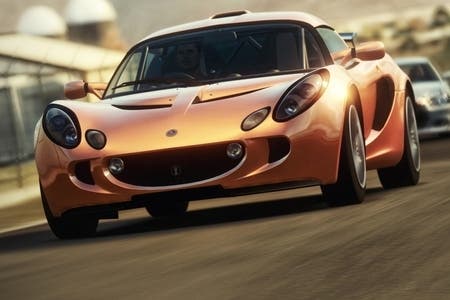

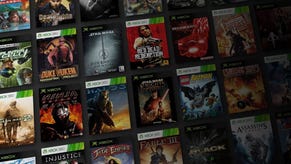
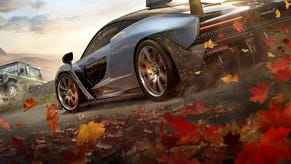
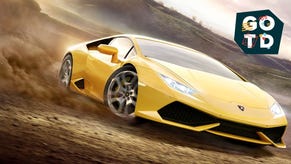
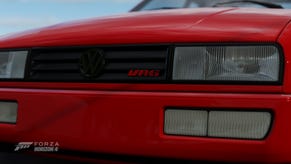
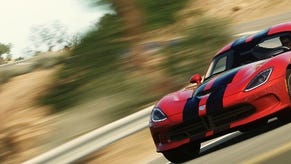
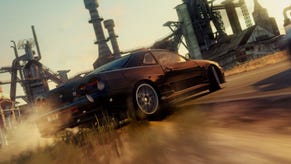
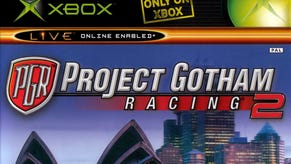
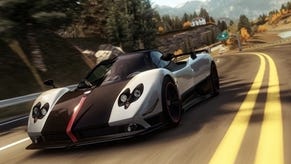
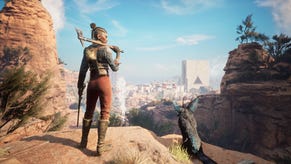



.png?width=291&height=164&fit=crop&quality=80&format=jpg&auto=webp)


